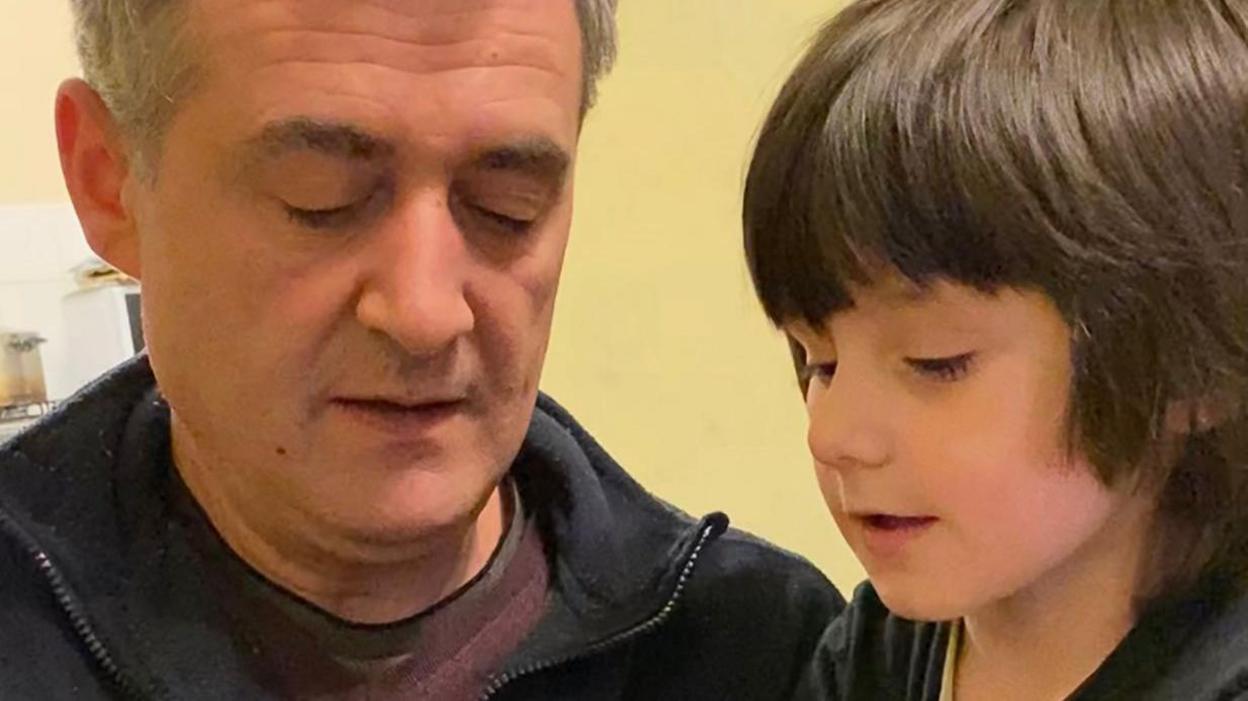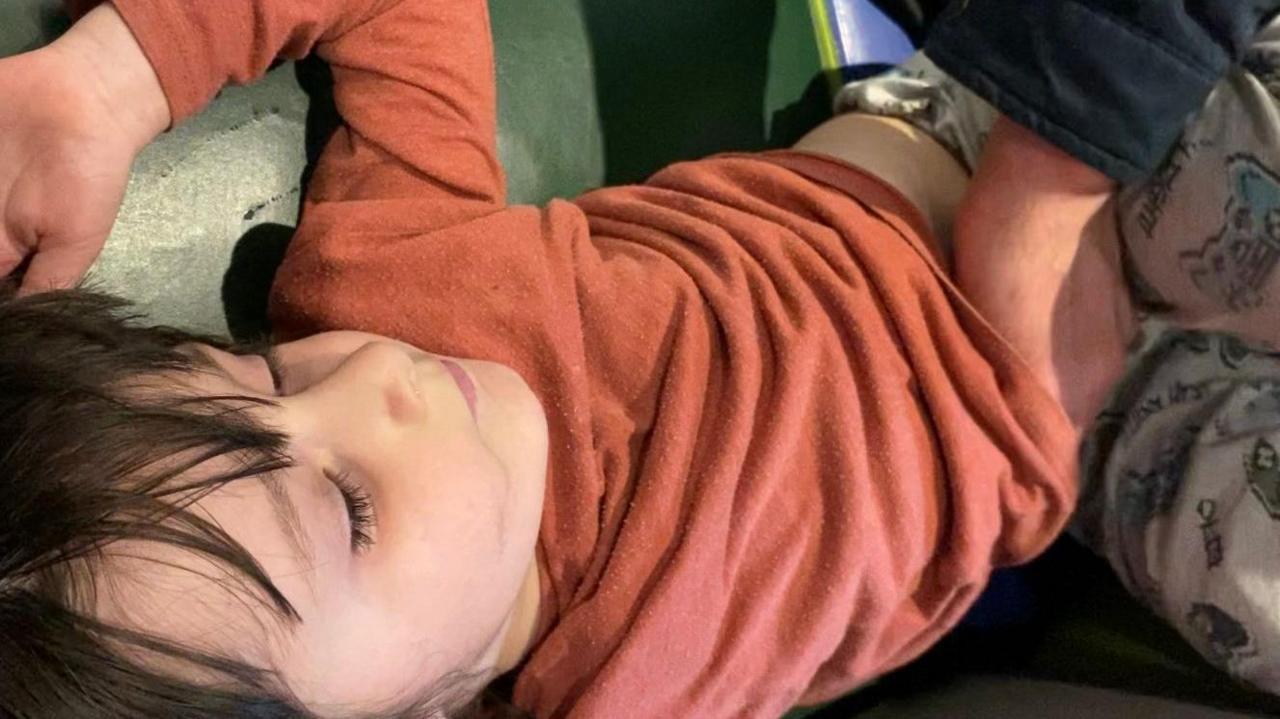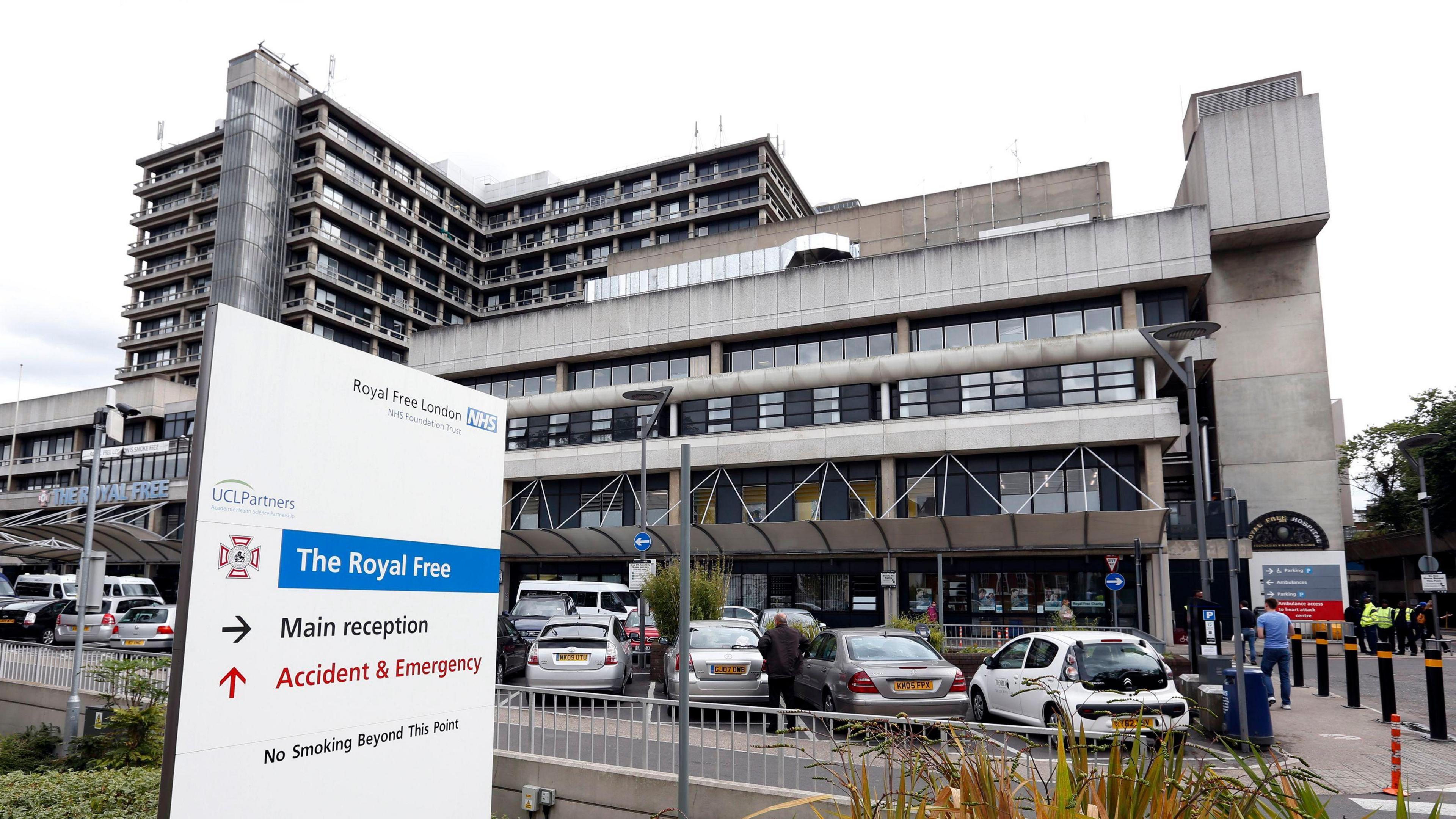Checks missed before boy died from sepsis, court hears

Daniel Klosi (right) died at the Royal Free Hospital after contracting sepsis
- Published
Staff at a north London hospital "missed or made incomplete medical checks" on a four-year-old boy in the days before he died from sepsis, an inquest has heard.
Daniel Klosi's parents previously said the family were at one point sent home from the Royal Free Hospital in Hampstead after staff told them to give him Calpol, the court heard.
He later died with sepsis, external, when the body's immune system overreacts to an infection and starts attacking its own tissues and organs, on 2 April last year.
Daniel's family, and several staff members who helped care for him, gave evidence at the hearing at Poplar Coroners' Court on Tuesday.
The inquest heard Daniel had been taken to the hospital four times in a week, including twice in one day, by his parents.
In a statement read out in court, Daniel's father Kastriot Klosi described his son as a "lively boy" with autism but no other health issues.
His statement said on 26 March he and Daniel's mother Lindita Alushi noticed Daniel was "wheezing and had a barking cough".
They took him to the Royal Free's Accident and Emergency (A&E) department, where he was diagnosed with crepitation - crackling - of the lungs.
They returned on 30 March and a doctor and nurse eventually said Daniel had picked up a virus, and sent him home to "rest".

Daniel's father told the inquest before his son died his nose, hands and feet had turned purple and his lips were blue
Mr Klosi's statement added that after Daniel "suddenly stopped eating and drinking" on 1 April, his parents called 111 and were seen at the hospital in a triage appointment at about 13:00 GMT.
Mr Klosi said: "I was really concerned and I felt as if the doctor was fixated on telling me Daniel had a virus rather than finding out what the real problem was."
After Daniel was again discharged, the family, from Kentish Town in north London, went back at roughly 16:30.
The statement added Daniel later started "deteriorating" in front of them, with his nose, hands and feet "turning purple" and his lips becoming cracked and blue.
He died later the following day.
'No concerning signs'
Dr Shrabhi Agarwal, an emergency physician in the A&E department, told the hearing she first saw Daniel in the early hours of 31 March, saying he looked "a bit unhappy" but not clinically unwell, and his chest "seemed clear".
She took a viral swab and said his temperature was "normal again" about an hour later, adding: "Because all the swabs were negative and Daniel was feeling better, I decided to discharge them."
She told the inquest she decided not to book a blood test because there were "no concerning signs".

Coroner Mary Hassell said she found one Royal Free consultant's thinking "very difficult to understand"
Lucy Parker, who was Daniel's triage nurse at the Royal Free on the morning of 1 April, told the inquest she could not perform a full set of observations on him "due to his distress", but from the ones carried out "there were no immediate alarm bells ringing".
Readings of Daniel's heart rate and blood pressure were not taken or logged, but Ms Parker added some of her colleagues tried to repeat some observations.
Dr Mudhen Al-Adnani conducted the post-mortem examination on Daniel and told the inquest the boy's left lung was "heavy" and he had pneumonia.
Dr Al-Adnani gave the cause of death as sepsis after the infection had breached Daniel's bloodstream, which he said could take "from several hours to several days" to show.
'Difficult to understand thinking'
Paediatric consultant Dr Kavita Sumaria also gave evidence, telling the hearing she saw Daniel on 1 April after noticing he had been waiting four hours to be seen, but thought "he had been a child who had been worse the previous night and was starting to improve".
She told the court she did not realise at the time that it was Daniel's third visit to the hospital, and she did not read the triage medical notes logged for him.
Asked by Coroner Mary Hassell if she thought administering antibiotics to Daniel at 15:30 that day would have saved him, Dr Sumaria replied: "I cannot quantify it."
The witness told the court she felt there was an "agreement" between her and Daniel's father when she diagnosed and discharged the boy, but she "may have misinterpreted that".
The inquest continues on Wednesday.
Listen to the best of BBC Radio London on Sounds and follow BBC London on Facebook, external, X, external and Instagram, external. Send your story ideas to hello.bbclondon@bbc.co.uk, external